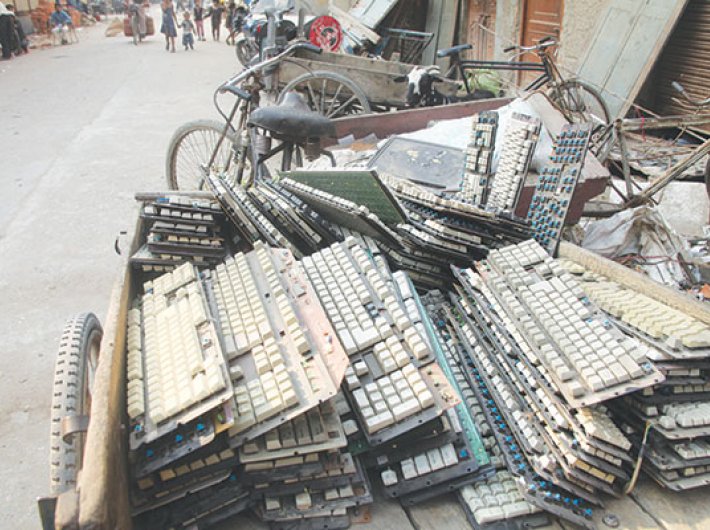Even after four years of e-waste rules in force, 66 percent of people are ignorant about it, shows a study conducted by Toxics Link
Though e-waste is one of the most talked about waste issues globally, the study to assess awareness levels of e-waste among common citizens reveals that a majority of Indians are unaware of this toxic waste stream.
Toxics Link report ‘What India Knows About E-waste’ mentions lack of awareness as a key reason behind poor e-waste management in the country.
The study also reports that even after four years of e-waste rules in force, 66 percent of people are ignorant about it. The rules, which mandates that e-waste should be disposed of only to authorized e-waste agencies, have not reached most people, especially in Kolkata, Delhi and Chennai, where 93 percent, 90 percent and 74 percent respondents respectively did not know anything about the legal framework and its provisions.
The study further reveals that as many as 61 percent of the respondents are ignorant about the impacts of improper disposal of electrical and electronic equipment.
“If this is the awareness level in the top five cities, then imagine the situation in smaller towns and cities”, Priti Mahesh, chief program coordinator, Clean Industry, Toxics Link, said, adding: “Lack of knowledge regarding the repercussions of improper disposal is leading to most consumers preferring the most convenient disposal route of selling their e-waste – kabaadiwalas or illegal collectors.”
The study found that more than 50 percent people sell their e-waste to kabaadiwalas, a practice known to lead to informal recycling causing harm to humans and environment.
Though under the e-waste rules, producers have been assigned the responsibility of educating the consumers, the findings indicate that they have not been doing this very well. Product booklets or information from brands was not a big source of information for most aware consumers. This is a clear indication that the producers have not been diligent in fulfilling their responsibility, said a press note.
“There is an urgent need to create awareness among consumers. The producers, government, and agencies responsible will have to make joint efforts to educate consumers and ensure improved compliance to rules on e-waste,” said Satish Sinha, associate director, Toxics Link.
Newspaper reports and information on the internet seem to be faring much better in educating public about e-waste as 50 percent of them quoted these as their source of information about the toxic waste stream.
“We also need to stress on regular awareness campaigns and drives to educate general public about their role in e-waste management, and the changing waste streams and its impact on health and environment,“ added Satish Sinha.
Read full report


